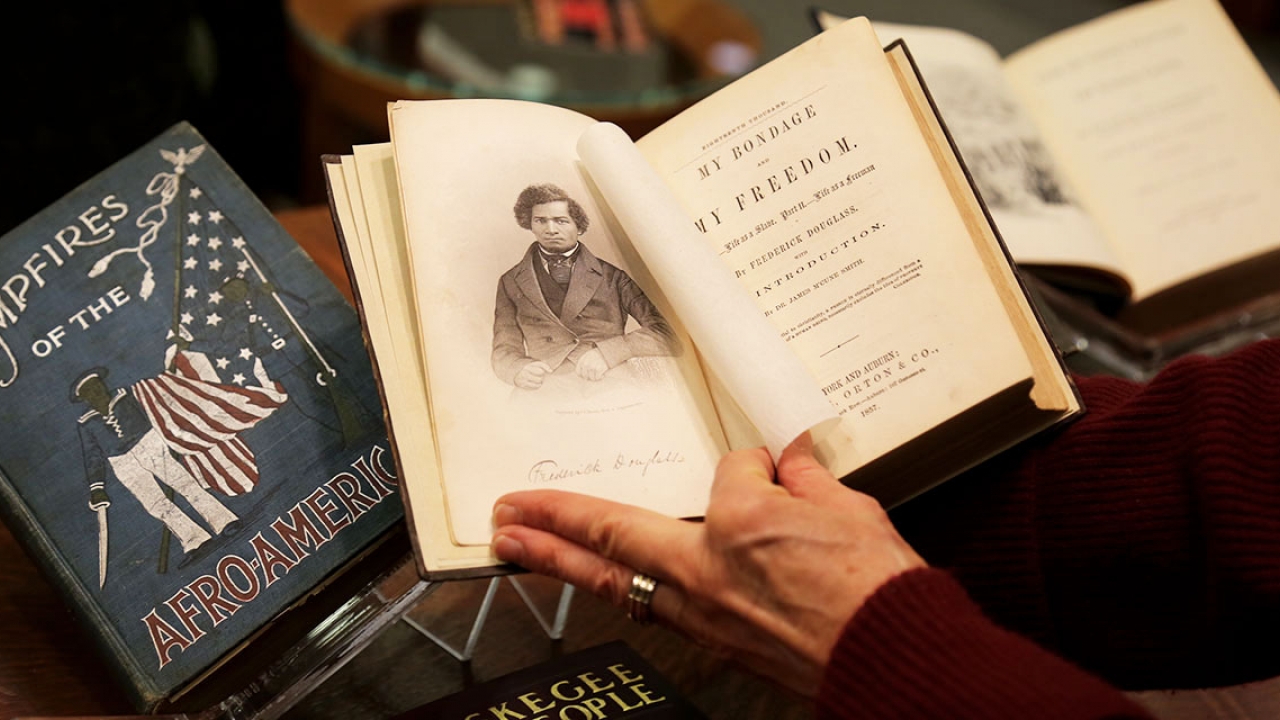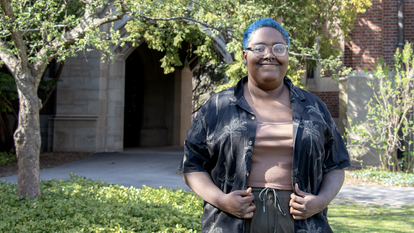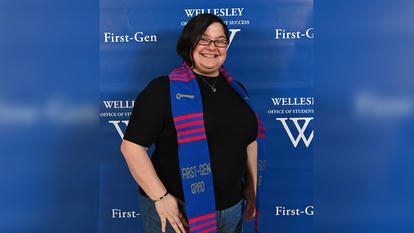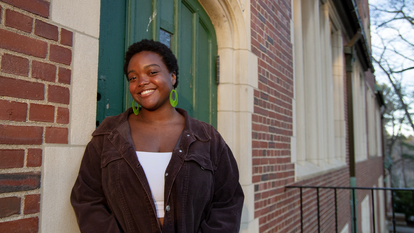Wellesley’s Elbert Collection Offers a Treasure Trove of Historic African American Historical Literature

To show his students examples of literature that reflects insight into slavery, abolition, and race relations in the United States, William E Cain, the Mary Jewett Gaiser Professor of English at Wellesley, takes them to the Elbert Collection, part of the Special Collections department of Clapp Library.
There, Cain and his students have access to almost 800 volumes, including novels, slave narratives, poetry, and folklore, by writers, African American and white, who chronicled slavery in America and its aftermath. The collection was donated to Wellesley by Ella Smith, class of 1888, and her husband, Samuel G. Elbert. Smith was the second African American woman to graduate from Wellesley.
“It is wonderful for the students who peruse this superb collection to hold in their hands and examine the books, pamphlets, and other materials in the form in which they were originally published—and read by contemporary readers,” Cain said.
In 1904, the Elberts, who loved reading, history, and African American writers, purchased about 300 volumes from Robert Mara Adger, a prominent African American intellectual and civic leader who collected books by black writers and historians at a time when their works were dismissed as irrelevant.
The Elberts also added more works from their private collection. In 1938, at her 50th class reunion, Elbert presented the entire collection to the College.
The Elbert Collection includes an early edition of My Bondage and My Freedom, the autobiography of Frederick Douglass, published in 1857, as well as early editions of Twelve Years a Slave, a narrative by Solomon Northup that was the inspiration behind the Academy Award-winning movie of the same name, and Shakespeare in Harlem by Langston Hughes.
“The research value of the Elbert Collection lies more in the breadth and scope of its content than in one or two single books,” said Ruth Rogers, curator of Special Collections. “Though there are many acclaimed works by abolitionist writers such as Harriet Beecher Stowe, the Grimke sisters, Frederick Douglass, and Lydia Maria Child, it is the inclusion of lesser-known and ephemeral material that gives the collection its unique character.”
Selwyn Cudjoe, professor of African Studies, uses the collection regularly for his classes on African-American literature. “It's important for my students to see and examine the early, in some cases, the first. editions of the books that they study,” he said. “One of the most exciting things for my students is to see Harriet Beecher Stowe's A Key to Uncle Tom's Cabin in which she speaks about the importance of The Life of Josiah Henson, a slave narrative, that Stowe used to help her to craft Uncle Tom's Cabin. In short, visiting the Collection is always a cause for wonder and stimulation. It gives a materialist feeling to distant and far-away mutterings they have heard in the past.”
Rogers said the entire collection is digitized and available through the Internet Archive. It is also searchable in the online catalog. “Through the eyes of these early collectors, we are given a deeper understanding of slavery and reconstruction, and the achievements of both well-known and unknown African Americans whose legacy is preserved in the Wellesley College Library,” she said.
Photo: Ruth Rogers, curator of special collections at the Wellesley, displays Frederick Douglass' My bondage and My Freedom published in 1857. Douglass' book is one of the 800 volumes on slavery, emancipation, and Reconstruction that make up the Elbert Collection.



